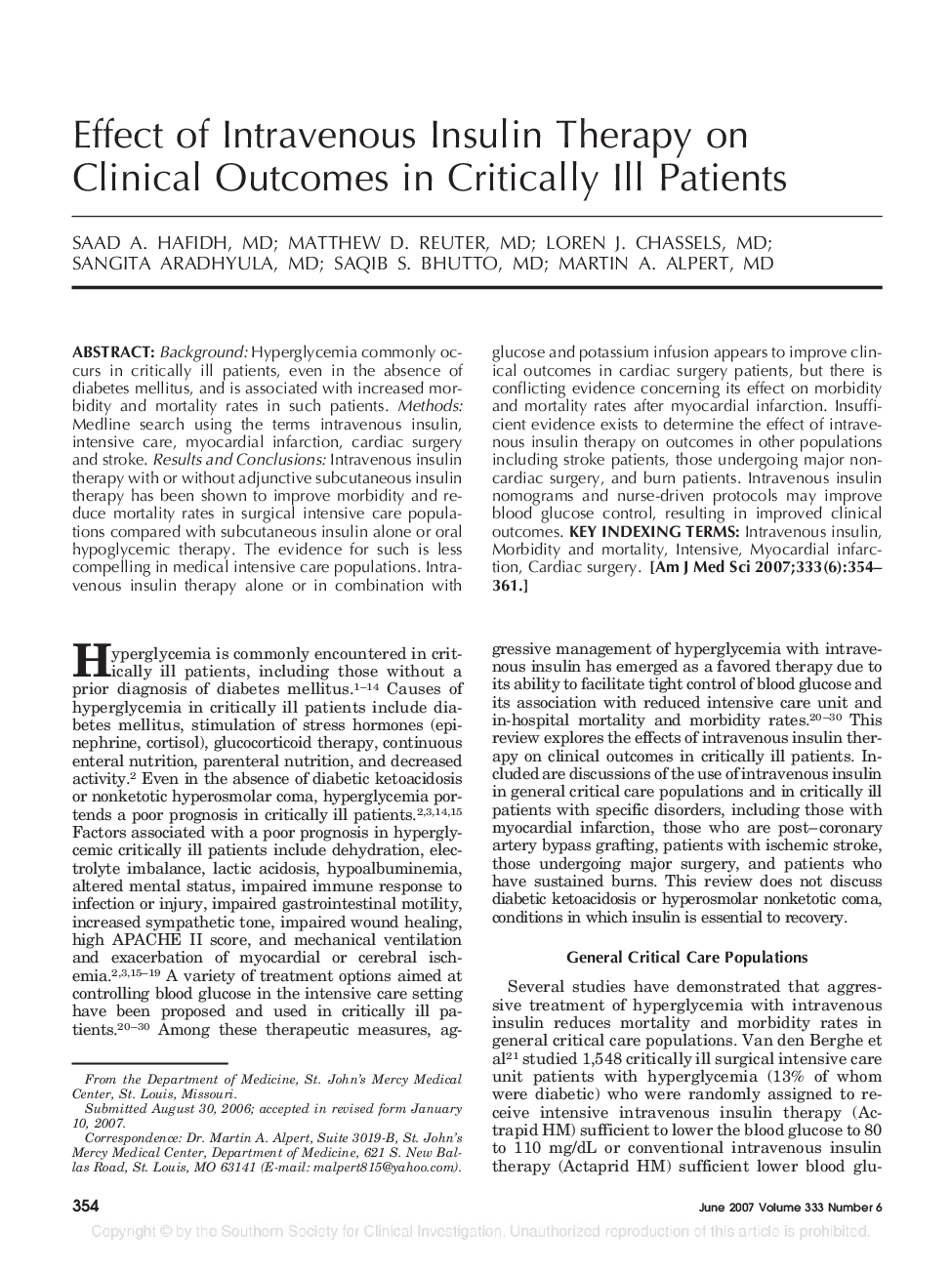| Article ID | Journal | Published Year | Pages | File Type |
|---|---|---|---|---|
| 2864637 | The American Journal of the Medical Sciences | 2007 | 8 Pages |
Abstract
Intravenous insulin therapy with or without adjunctive subcutaneous insulin therapy has been shown to improve morbidity and reduce mortality rates in surgical intensive care populations compared with subcutaneous insulin alone or oral hypoglycemic therapy. The evidence for such is less compelling in medical intensive care populations. Intravenous insulin therapy alone or in combination with glucose and potassium infusion appears to improve clinical outcomes in cardiac surgery patients, but there is conflicting evidence concerning its effect on morbidity and mortality rates after myocardial infarction. Insufficient evidence exists to determine the effect of intravenous insulin therapy on outcomes in other populations including stroke patients, those undergoing major noncardiac surgery, and burn patients. Intravenous insulin nomograms and nurse-driven protocols may improve blood glucose control, resulting in improved clinical outcomes.
Related Topics
Health Sciences
Medicine and Dentistry
Cardiology and Cardiovascular Medicine
Authors
Saad A. MD, Matthew D. MD, Loren J. MD, Sangita MD, Saqib S. MD, Martin A. MD,
